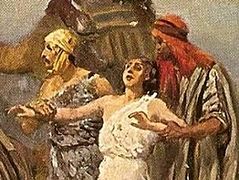May 31, 2017
By the time the disastrous and punitive Reconstruction ended in the southern states, as part of an understanding that settled the disputed presidential election of 1876, men of intelligence and reasonably good will no longer defended the “peculiar institution” of slavery. They affirmed, with a defensiveness that should not surprise us, that everyone had always acknowledged it to be an evil. The task now was what to do to achieve the common good, given that the black man was free and equal to the white man under the law.
So I find, in some of my old copies of The Century (1884-85), an eloquent and passionate argument between two southern men, one decrying segregation, and the other defending it as something that the people of each race were naturally drawn to, and insisted upon. And yet the specter of slavery lingered in the dark corners of men's imaginations. Blacks feared its return, and the habits that slavery had long engendered could not be eradicated by political change.
What was the evil of slavery? It cannot be merely that one man's will was subject to another. If that were all, then children would be slaves of their parents, employees would be slaves of their employers, enlisted men would be the slaves of their officers, and all of us would be slaves of politicians. A Christian cannot consider the sacrifice of his will, in itself, to be evil, nor the unimpeded exercise of his will to be good.




